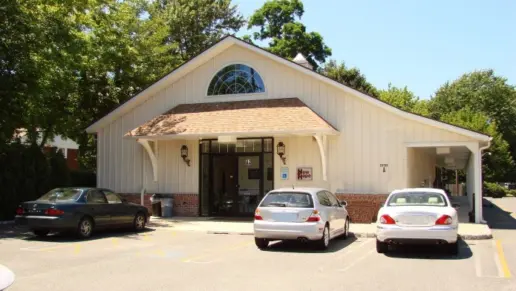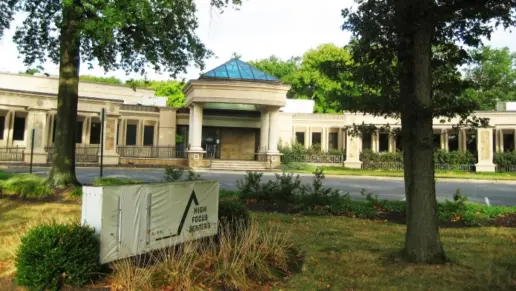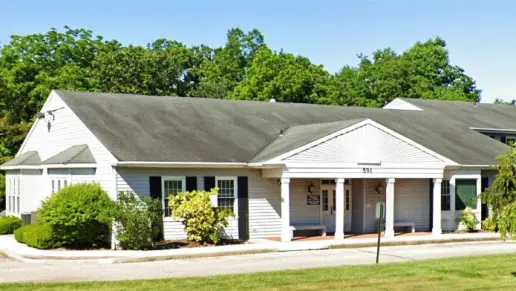About High Focus Treatment Centers – Cranford Outpatient Treatment Center
High Focus Treatment Centers – Cranford Outpatient Treatment Center offers mental health and substance use disorder treatment. High Focus has multiple locations in Connecticut, Georgia, North Carolina and New Jersey. This treatment center in Cranford, New Jersey offers comprehensive outpatient services for mental health and substance use for adults. They also treat substance use and co-occurring disorders in kids ages 14 to 17.
The center is CARF accredited and licensed by the New Jersey State Department of Human Services. They are in network with most major insurance providers. They’re also part of the Veterans Affairs Community Care Network.
They offer a track specifically for LGBTQ+ and note that the community suffers from high rates of mental health and substance use disorders. Depression and anxiety are especially common among LGBTQ+. The program helps clients build relationships and find community.
Kids ages 14 to 17 can get help for their substance use and co-occurring disorders. They do this through an intensive outpatient program (IOP) where youth receive therapeutic modalities tailored to their individual needs. This may include group and individual therapy as well as other therapies.
There’s a partial hospitalization program (PHP) for adults that’s designed to address the primary mental health disorder. They use dialectical behavior therapy (DBT), group therapy and individual therapy sessions. They work to stabilize significant mental health issues such as anxiety, depression, bipolar disorder and schizophrenia. These disorders are commonly found concurrent with substance use.
They have an intensive outpatient program (IOP) that addresses substance use disorder when it’s the primary diagnosis. The IOP has day and night sessions to allow you some flexibility with your schedule. They also use therapeutic modalities tailored to your unique situation. The IOP also offers telehealth solutions. You can attend therapy sessions, support groups and counseling online.
Previous clients report the program was “very educational and helpful” with recovery. They also felt the program set them up well for long term recovery.
Rehab Score
Gallery
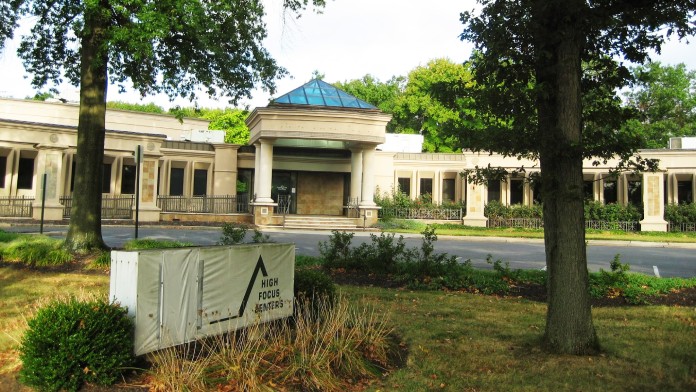
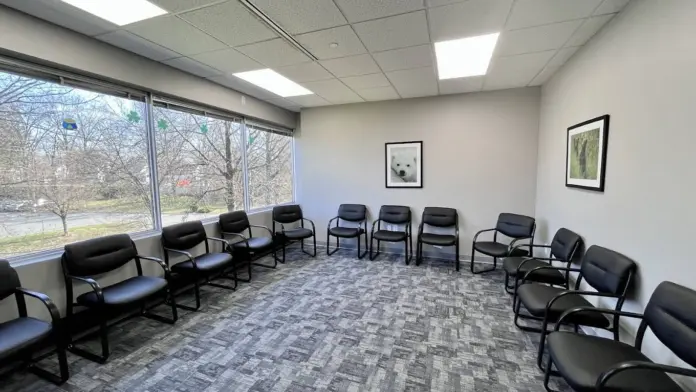
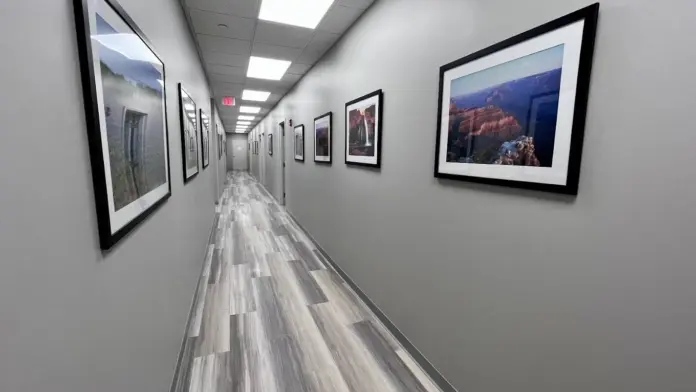
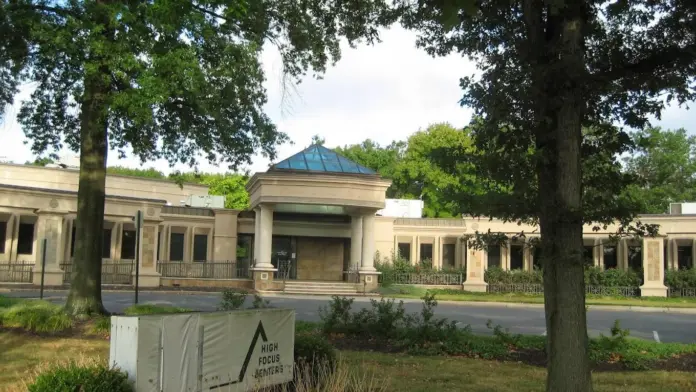
Location
Other Forms of Payment
Private insurance refers to any kind of healthcare coverage that isn't from the state or federal government. This includes individual and family plans offered by an employer or purchased from the Insurance Marketplace. Every plan will have different requirements and out of pocket costs so be sure to get the full details before you start treatment.
Self-pay involves paying for treatment out of your own pocket. You can use savings or credit, get a personal loan, or receive help from family and friends to fund your treatment. If you don't have insurance or your insurance plan doesn't cover a specific program, self-pay can help ensure you still get the care you need.
Military members, veterans, and eligible dependents have access to specific insurance programs that help them get the care they need. TRICARE and VA insurance can help you access low cost or no cost addiction and mental health treatment. Programs that accept military insurance often have targeted treatment focused on the unique challenges military members, veterans, and their families face.
Addiction Treatments
Levels of Care
Treatments
The goal of treatment for alcoholism is abstinence. Those with poor social support, poor motivation, or psychiatric disorders tend to relapse within a few years of treatment. For these people, success is measured by longer periods of abstinence, reduced use of alcohol, better health, and improved social functioning. Recovery and Maintenance are usually based on 12 step programs and AA meetings.
Drug rehab in New Jersey is the process of addressing the complex issues involved with addiction. Challenges are identified and addressed through individual and group counseling. Participants learn how to manage these issues without the use of substances.
Many individuals suffer from both substance abuse and psychiatric disorders simultaneously. The initial assessment at High Focus is designed to identify the nuances that these patients present and offer a proper diagnosis so that the optimal treatment course can be pursued. A comprehensive program has been designed for individuals with a dual diagnosis which includes a weekly psychiatry session, a specialized psycho-educational curriculum designed specifically for the co-occurring population, group therapy interventions and DBT skills training. Co-occurring patients are given random, supervised drug screens.
A combined mental health and substance abuse rehab has the staff and resources available to handle individuals with both mental health and substance abuse issues. It can be challenging to determine where a specific symptom stems from (a mental health issue or an issue related to substance abuse), so mental health and substance abuse professionals are helpful in detangling symptoms and keeping treatment on track.
Opioid rehabs specialize in supporting those recovering from opioid addiction. They treat those suffering from addiction to illegal opioids like heroin, as well as prescription drugs like oxycodone. These centers typically combine both physical as well as mental and emotional support to help stop addiction. Physical support often includes medical detox and subsequent medical support (including medication), and mental support includes in-depth therapy to address the underlying causes of addiction.
Programs



Clinical Services
Cognitive Behavioral Therapy (CBT) is a therapy modality that focuses on the relationship between one's thoughts, feelings, and behaviors. It is used to establish and allow for healthy responses to thoughts and feelings (instead of unhealthy responses, like using drugs or alcohol). CBT has been proven effective for recovering addicts of all kinds, and is used to strengthen a patient's own self-awareness and ability to self-regulate. CBT allows individuals to monitor their own emotional state, become more adept at communicating with others, and manage stress without needing to engage in substance abuse.
Group therapy is any therapeutic work that happens in a group (not one-on-one). There are a number of different group therapy modalities, including support groups, experiential therapy, psycho-education, and more. Group therapy involves treatment as well as processing interaction between group members.
In individual therapy, a patient meets one-on-one with a trained psychologist or counselor. Therapy is a pivotal part of effective substance abuse treatment, as it often covers root causes of addiction, including challenges faced by the patient in their social, family, and work/school life.
Motivational interviewing helps clients find their motivation to change. It can be an effective method to work with clients who are angry or hostile or feel insecure about their ability to make changes in their lives. It is often used during addiction treatment or to manage physical health conditions.
Research clearly demonstrates that recovery is far more successful and sustainable when loved ones like family members participate in rehab and substance abuse treatment. Genetic factors may be at play when it comes to drug and alcohol addiction, as well as mental health issues. Family dynamics often play a critical role in addiction triggers, and if properly educated, family members can be a strong source of support when it comes to rehabilitation.
Recreational therapy is a dynamic approach to addiction treatment in New Jersey. It integrates activities like music therapy, team sports, and gardening so you have a therapeutic outlet for your emotions and stress. This improves your physical and mental health and helps you develop new skills to support a sober lifestyle.
Amenities
-
Private Setting
-
Yoga Studio
Staff & Accreditations
Staff

Executive Vice President of Operations

Vice President of Clinical Operations

Vice President of Compliance

Vice President of Marketing

Vice President of Quality Management
Accreditations

The Commission on Accreditation of Rehabilitation Facilities (CARF) is a non-profit organization that specifically accredits rehab organizations. Founded in 1966, CARF's, mission is to help service providers like rehab facilities maintain high standards of care.
CARF Accreditation: Yes

State Licenses are permits issued by government agencies that allow rehab organizations to conduct business legally within a certain geographical area. Typically, the kind of program a rehab facility offers, along with its physical location, determines which licenses are required to operate legally.
State License: New Jersey

The Joint Commission, formerly known as JCAHO, is a nonprofit organization that accredits rehab organizations and programs. Founded in 1951, the Joint Commision's mission is to improve the quality of patient care and demonstrating the quality of patient care.
Joint Commission Accreditation: Yes
Contact Information
65 Jackson Drive
Suite 202
Cranford, NJ 07016
